
I got my first glasses when I was 6. My first contact lenses arrived when I was 12. I’ve had poor sight for as long as I can remember, and I always experienced it as a burden. For more than 6500 days, contact lenses were part of my daily life. Pop them in in the morning, get them out in the evening, for more than 18 years. Frankly, the decision to have laser eye treatment didn’t really come as much of a surprise to anyone. I just didn’t dare to actually go ahead and do it – until recently. A month ago I’ve had laser treatment with the ReLEx smile method.
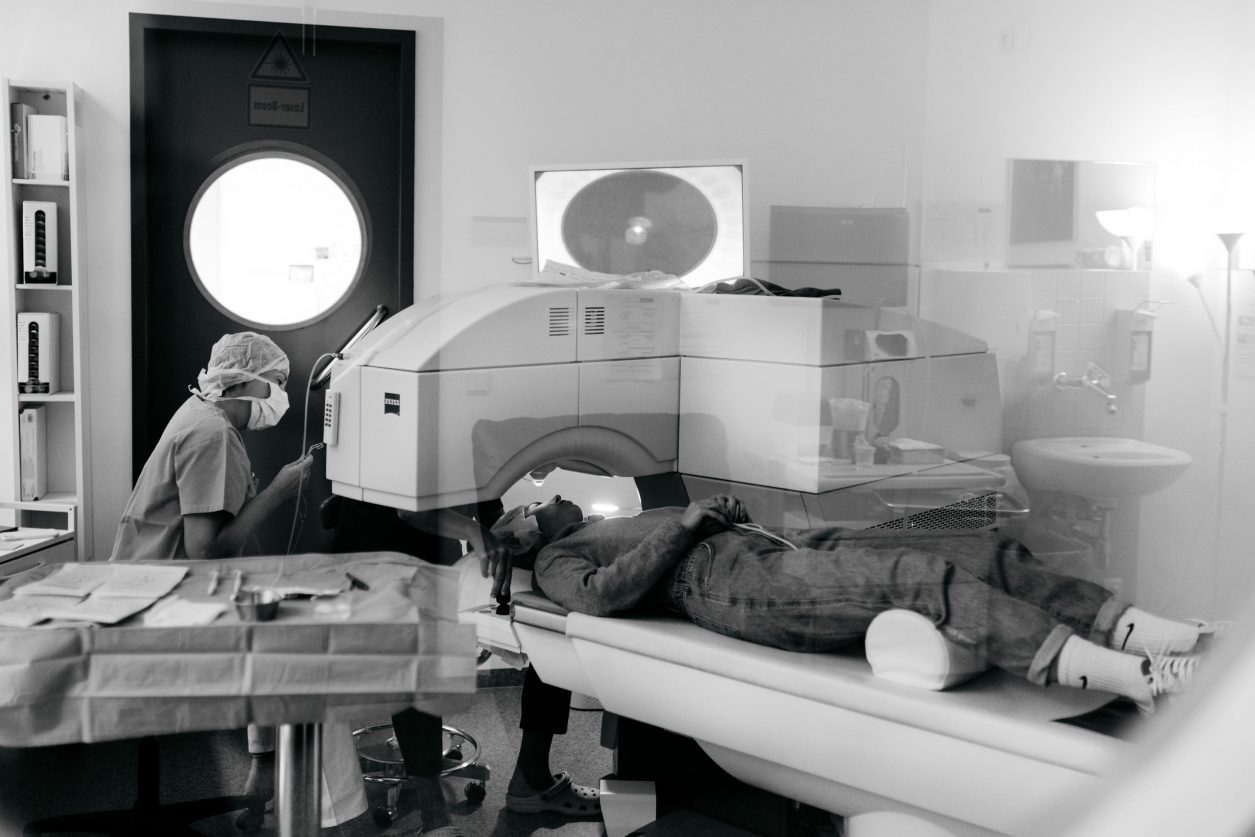
Honestly, even if it’s not immediately visible from the outside, this procedure has changed my life.
At long last I wake up in the morning and the first thing I see are sharp, focused images. It’s the most natural thing for many, but for me this means an entirely new quality of life. It’s unreal knowing that I’ll never need glasses or lenses again. A month has already passed, but I still find myself automatically wanting to take out my lenses in the evenings, only to realize that it’s no longer necessary. Having this procedure was one of the best decisions I made this year, even if it took me a while to get there.
I only realized how many of you are also playing with the thought of having laser eye treatment when I read all the messages you sent me, often also voicing your concerns. I shared many of those concerns, but they were mostly dispersed when I had a consultation meeting and was thoroughly informed about the procedure itself as well as the related risks. I knew that the treatment os considered low-risk, but I can’t deny that I was scared that something may go wrong. We’re talking about the eyes, after all, the most important sensory organ we have.
Spoiler: it all went well.
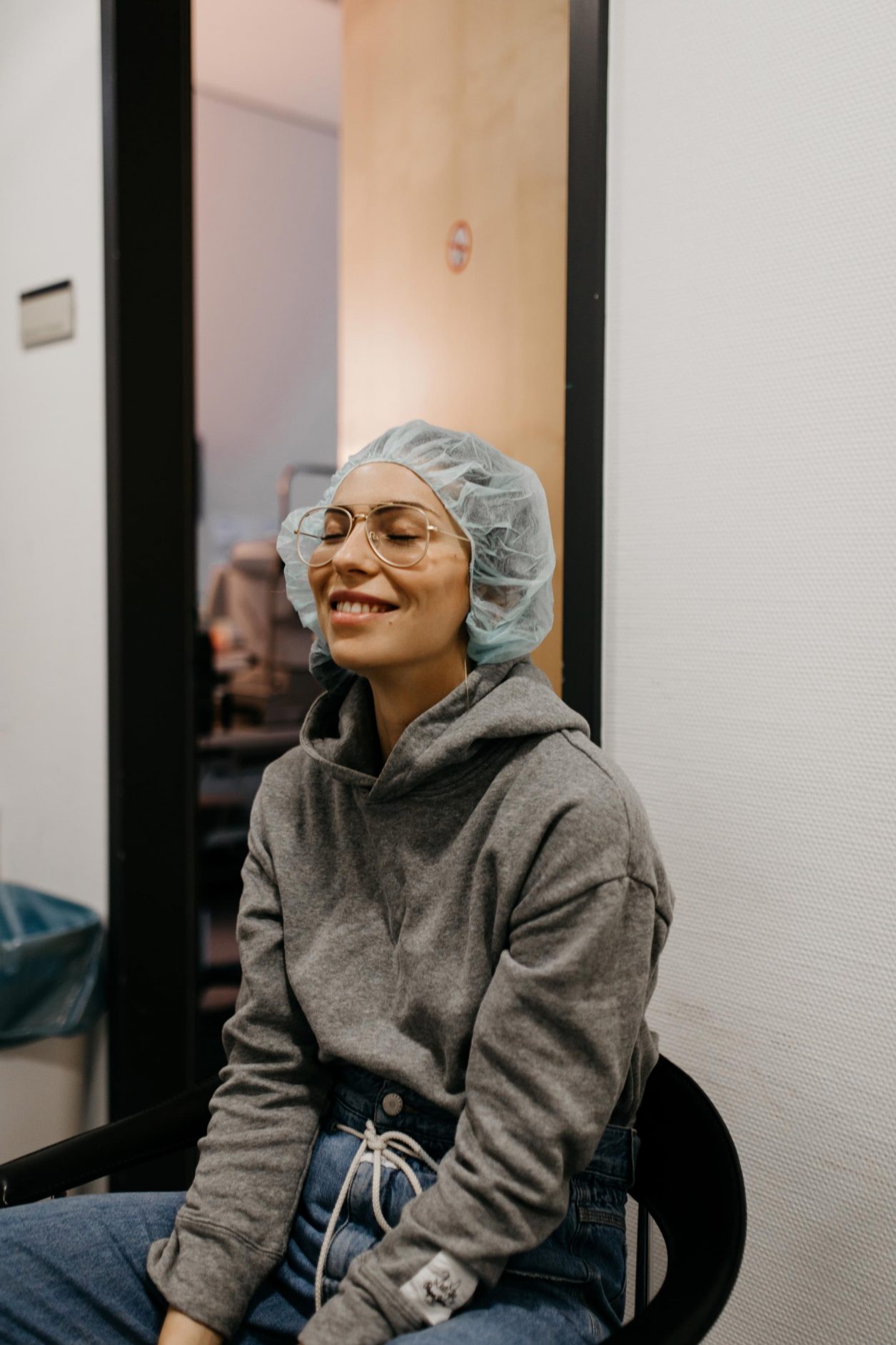
The treatment went without a hitch, and I’d definitely do it again, despite the fact that I was in a bit of pain for a few days. I chose the ReLEx smile method, which is a little more expensive, but ultimately less rough on the eye, because the incision is tiny. My eyes are very dry to begin with, so that was another argument for this gentler method.
How was the treatment itself?
After the aforementioned consultation meeting and another preparatory meeting in which my eyes were thoroughly examined in order to make sure I am actually a suitable candidate for ReLEx smile (which in Berlin is performed exclusively by EuroEyes). My treatment date came only a few days later at midday and was over before I knew it. The laser needs only 32 seconds per eye, so the whole procedure was wrapped up in about 30 minutes.
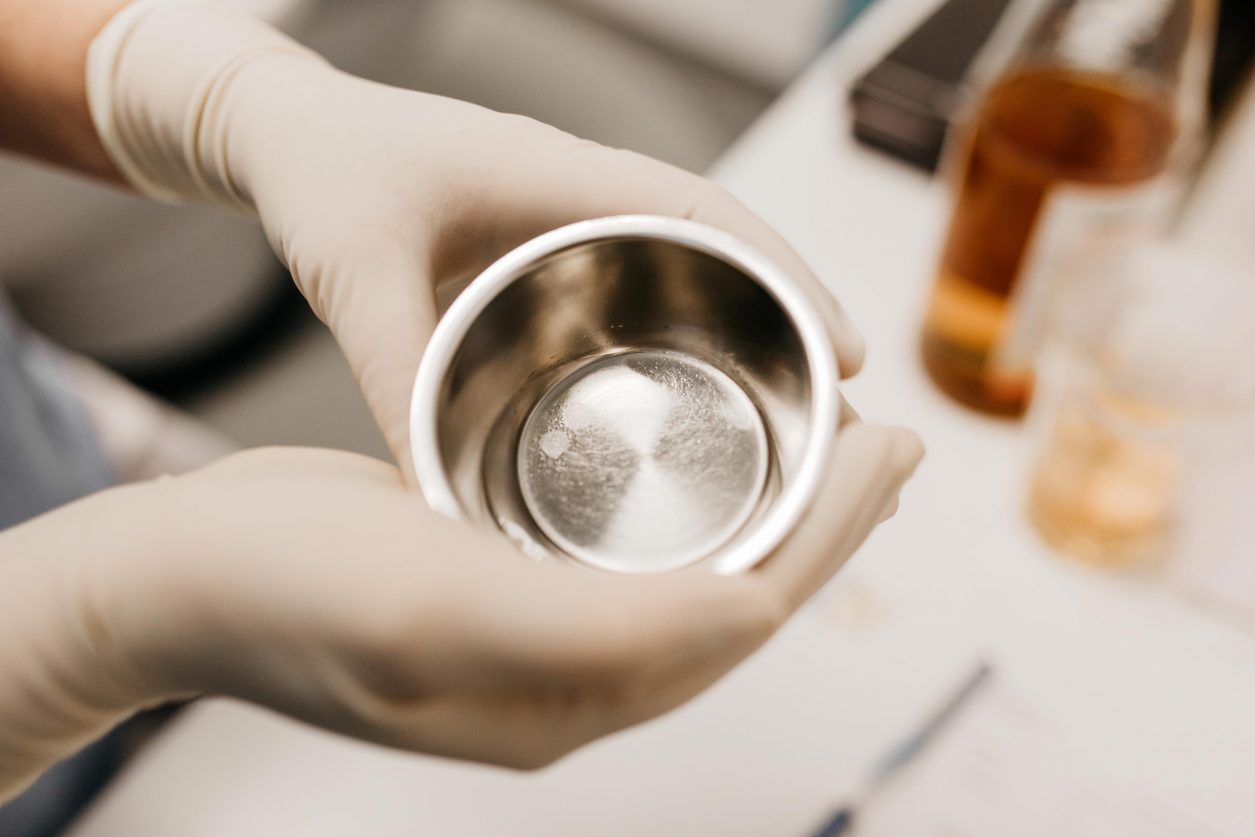
In the process, a special femto-second laser prepares an extremely thin slice inside the cornea, which is then removed via a merely 2mm incision from the cornea. The advantage in this approach is obvious: it is less invasive, the cornea remains stable, and flap complications that sometimes occur in other methods can be ruled out. Before the procedure, the eyes are anesthetized with special drops, and I was given a tranquilizer pill as well, which made me very tired after the treatment. I would strongly recommend that you have someone bring you there and pick you up again, as you’re sense of orientation is pretty mixed up immediately after the treatment, and it’s recommended you keep your eyes closed. My treatment was scheduled for 12:30 – and I was already back home by 2pm. I dropped right into bed there and then and slept through until Thursday morning. The next day I felt pretty good, but didn’t see sharp and clearly yet – that came gradually over the next couple of days and weeks. I was in a bit of pain from Thursday to Friday, the subsequent days were more uncomfortable than painful, as the eyes are extremely sensitive in that period.
Today I have 20/20 vision and the only thing I notice is a certain occasional dryness that reminds me a little bit of my time with contact lenses. But this particular sensation is decreasing as well, and I am mostly left with the question: why didn’t I go and get this done much earlier?
I covered the entire process in my stories, and found that you guys have as least as many questions as I did, so I seized the opportunity and asked my surgeon Dr. Lamcke from EuroEyes Clinic to kindly answer a few of your questions:
Which laser method is best for which candidate?
That’s evaluated during the pre-examination. The decisive factors include the overall predisposition, the individual shape and thickness of the cornea etc. – all these aspects are evaluated, and the patient subsequently has the choice between ReLEx smile and Femto-Lasik, depending on the results of the examination. In case of very dry eyes we recommend ReLEx smile.
When is treatment not possible?
When the cornea is anomalous in certain ways, or when it’s too thin.
Does the corneal curvature play a role?
Not per se, as that’s a factor that can also be corrected in treatment. Astigmatism is also a dioptre – near as well as far sightedness to a maximum of +4, short-sightedness to a maximum of -10 and astigmatism to -6 can be corrected.
Within these parameters, does it make a difference how good or bad a patient’s eyesight is?
That doesn’t make a difference.
Is there a maximum value beyond which laser treatment is no longer possible?
The threshold is at -10, if the cornea is sufficiently thick.
Is there a minimum diopter level necessary to justify treatment?
In the case of ReLEx smile it’s -1, for Lasik -0.5.
At what age is it recommended to undergo laser treatment?
The eyesight should have been stable for about 2 years, i.e. it should not have deteriorated by more than 0.5 dioptres. Patients can not be younger than 18, and then only if the values are genuinely stable. From 45 onwards we tend to swap lenses rather than correct them with lasers, as patients usually also exhibit presbyopia in this age bracket as well – which cannot be corrected with lasers.
What does laser eye treatment cost for one or two eyes?
ReLEx smile costs 4.800 EUR for both eyes.
Is it covered by healthcare?
A number of private insurances cover the costs.
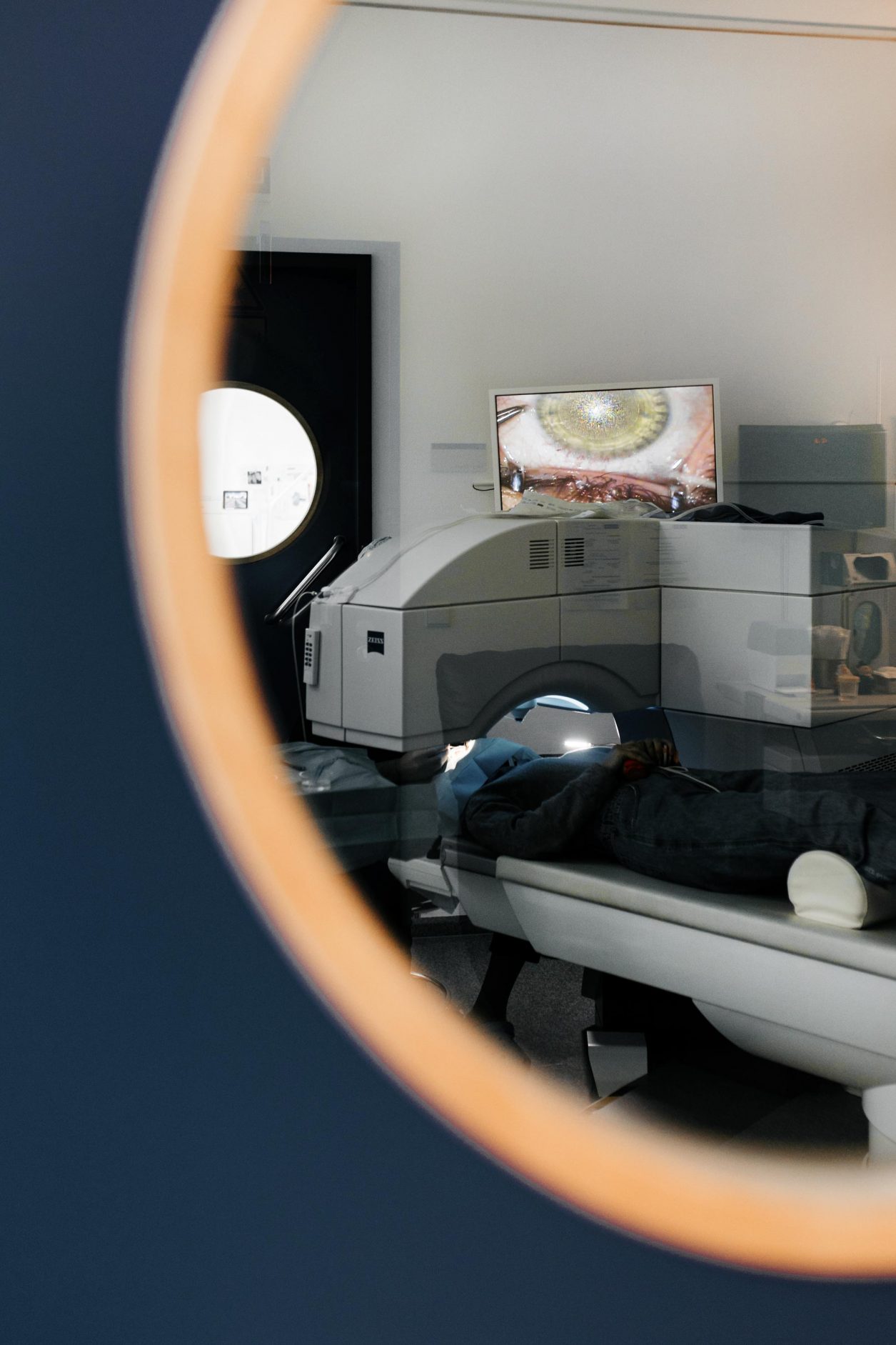
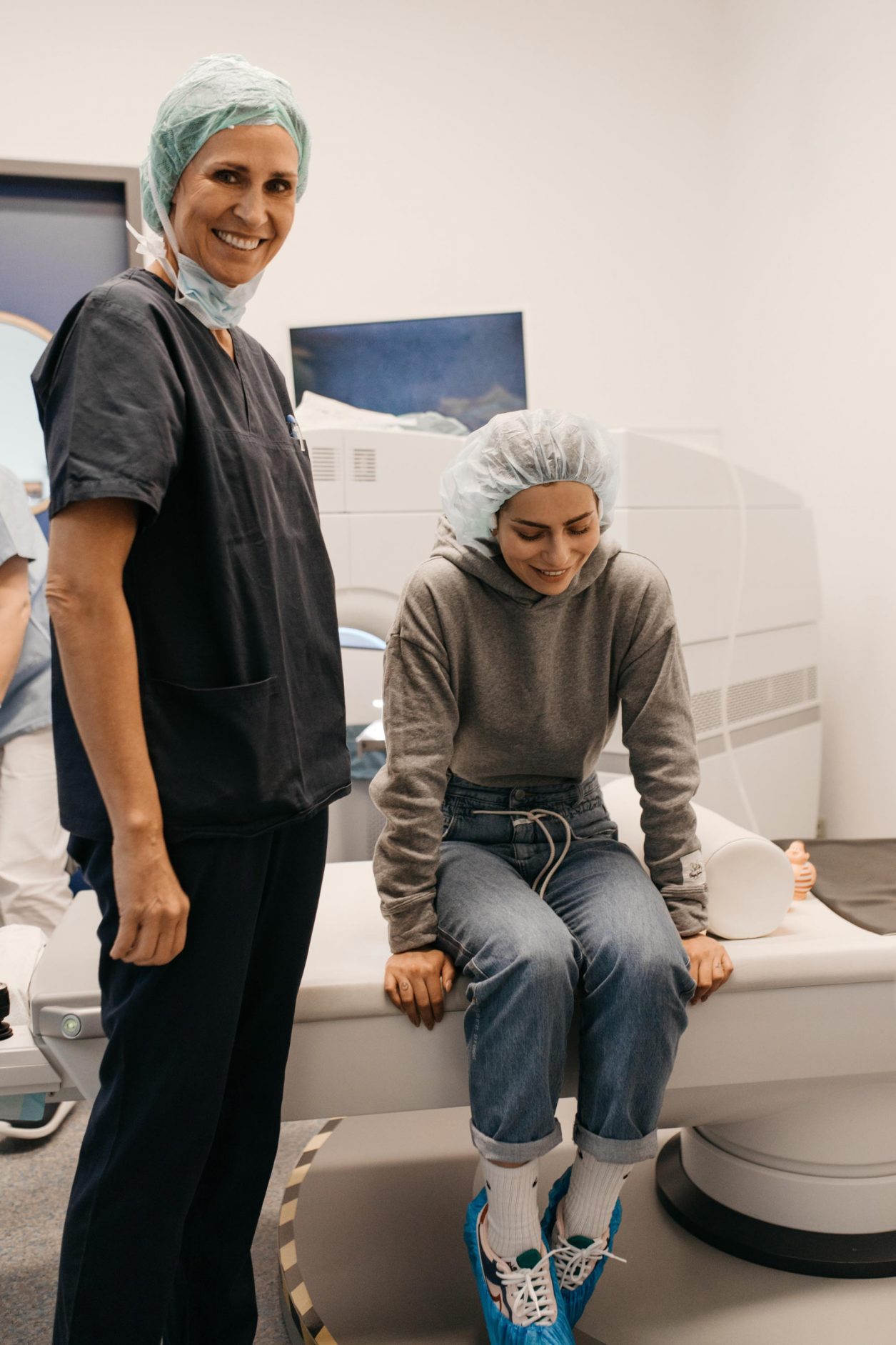
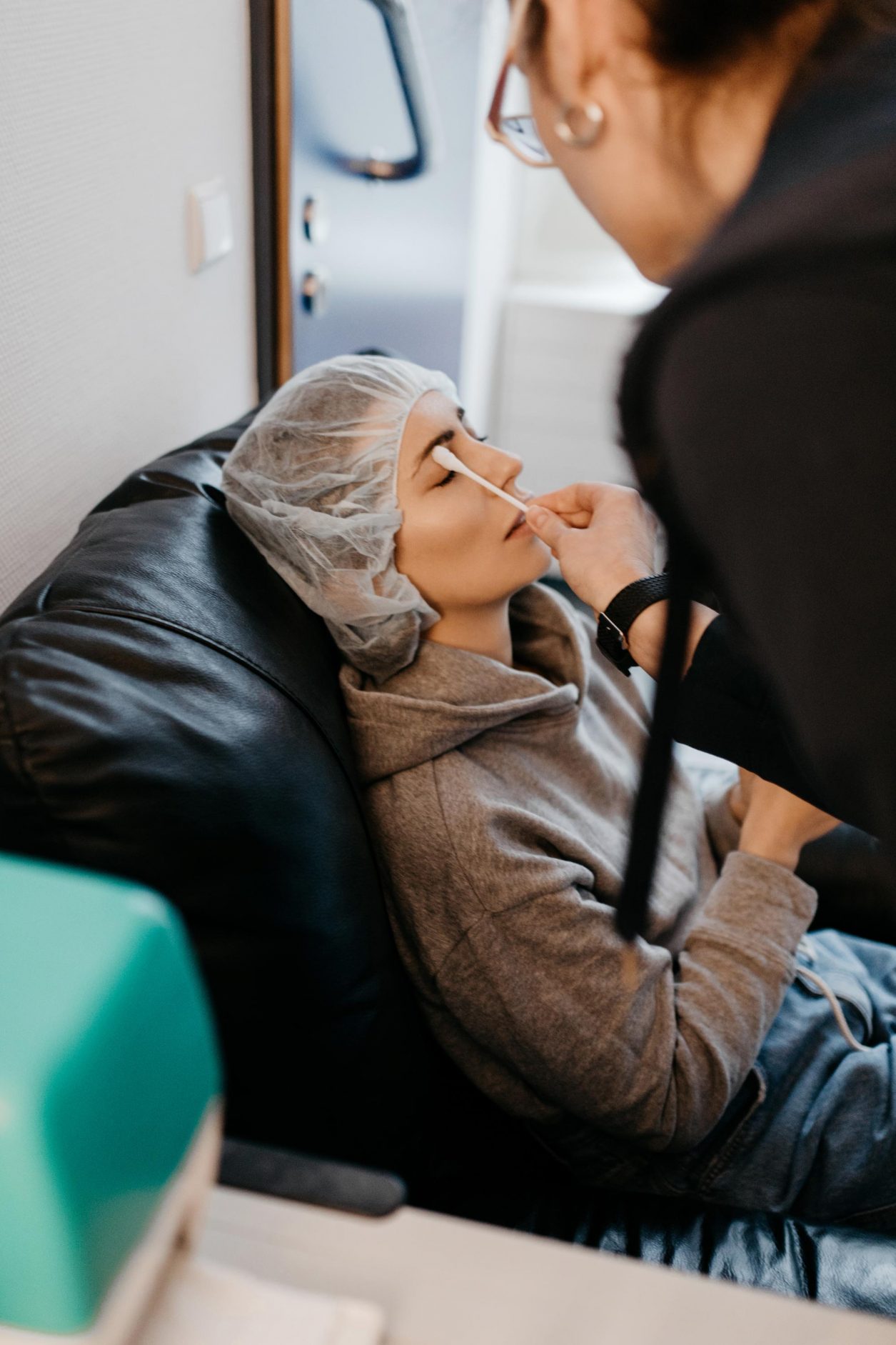
What are the advantages of laser correction over implantable lenses?
It is possible to implant lenses into the eyes, so called ICLs, if the eye is not suited for laser treatment.
What is the other variant of laser treatment?
The other main approach is Femto-Lasik, which is done with a femto-second laser. It starts at 3.900 EUR for both eyes up to 4.500 EUR if the values are very high.
How long does it take for patients to regain regular sight without pain?
You’ll be able to see right after the treatment, but initially vision is blurred and it gradually sharpens over the subsequent couple of days.
How long does it take after treatment before one can fly?
It’s possible to fly right away if necessary, but it’s important for the patient to come to a check-up the day after the procedure. The first check is crucial. That said, the eyes are very dry after treatment, so it’s important to moisturize them with drops, especially on long-haul flights, as the air on planes is very dry as well.
Are there any long-term effects a patient should be aware of?
We have conducted laser treatment for over 20 years, so there is a lot of long-term data available for Femto-Lasik. The ReLEx smile procedure has been practiced at EuroEyes for 15 years. So far we have not observed any averse long-term effects.
How are the eyes anesthetized before treatment?
We give patients a light tranquilizer pill, and the eye itself is anesthetized with drops. The blinking reflex during treatment is avoided with a little lid-holder, which props the eye open for the duration of the procedure.
Do patients get an injection into the eye?
No.
Can the eyesight deteriorate due to hormonal changes during pregnancy?
During pregnancy, the eyesight can fluctuate, but vision usually stabilizes after pregnancy. During pregnancy itself – and also while breastfeeding – it is not advisable to undergo treatment, partly also due to the fact that patients receive medication after the procedure.
How high is the risk to go blind as a result of this procedure?
It is not possible to lose one’s eyesight due to a laser treatment. That said, there is a risk of intra-ocular infection, which can lead to blindness. However, we do not offer intra-ocular treatment, i.e. we do not open the eye as such. In the 25-year history of the EuroEyes Clinic Group, blindness has never occurred.
Is it necessary to repeat the procedure after a few years?
Not usually, no, unless the eye keeps growing. Typically, eyes stop growing in the mid-twenties.
Is it possible to end up with better vision than one had with glasses or contact lenses?
Yes, indeed, especially in case of strongly short-sighted patients, who see everything scaled-down. The amplification of the scale means that some patients see better than they ever have after treatment.





I.m very inspired by your post. I’m planning to rid of my glasses. I consulted some doctors but stills I was a little nervous and never took a step. But now I ready to change my lifestyle. Thank you for sharing this post.
Keep posting such informative content,
OMG, you’re so beautiful and you should be very happy with the result !
Sandra
Wow Masha, vielen Dank für diesen Beitrag! Ich bin selbst kurzsichtig (etwa -4,00) und die Kontaktlinsen-Tragerei nervt mich soo sehr. Aber ich muss ehrlich sagen, dass ich ziemlichen Respekt vor einem solchen Eingriff habe. Es geht nunmal um die Augen. Mein Vater hat das machen lassen und super gesehen (bis dann die “Alters”Weitsichtigkeit kam :D) und meine Oma wurde auch mal komplikationsfrei am Auge operiert. Dein Post hat mir echt Mut gemacht und ich ziehe so eine Behandlung auf jeden Fall in Erwägung. Eventuell sollte ich aber noch etwas warten, falls meine Augen noch wachsen bzw meine Sicht sich noch weiter verschlechtert.
Danke dir auf jeden Fall für die hilfreichen Informationen :)
Viele liebe Grüße,
Krissi von the marquise diamond
https://www.themarquisediamond.de/
Great article very well described I love your way of writing.
And I must say you are looking so beautiful in this eye color.
Du siehst wirklich hübsch aus
I would love to change my life like this, but I am afraid..
http://www.vanessaventuri.com
Frohes Neues Jahr.!! Du siehst wirklich wunderschön aus. Wenn ich eines Tages Geld habe, will ich eines davon kaufen. Danke.